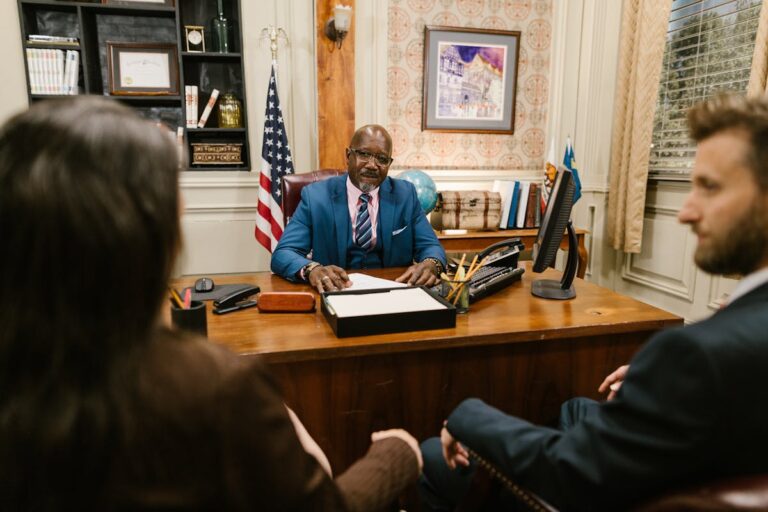Fired for Social Media Posts: Your Legal Rights and Options
Getting fired for a social media post can feel shocking and unfair, but understanding your legal rights is crucial. The reality is that most private employers can legally terminate employees for social media activity under at-will employment laws. However, significant legal protections exist that many employees don’t know about, including federal labor law protections for work-related discussions and anti-discrimination safeguards.
While employers generally have broad discretion to fire employees for social media posts they deem inappropriate, several important exceptions could protect you. The National Labor Relations Act protects employees who discuss working conditions, wages, or workplace issues with coworkers online. Additionally, terminations motivated by discrimination or retaliation for protected activities remain illegal, even when social media is involved.
Your specific situation matters greatly – the content of your posts, your employment status, and your employer’s stated reasons for termination all play critical roles in determining whether you have legal recourse.
Can You Be Fired for Social Media Posts?
Yes, in most cases private employers can fire employees for social media posts. Under at-will employment laws that govern most U.S. workplaces, employers can terminate workers for nearly any reason that isn’t specifically prohibited by law. This includes firing someone for social media activity the company finds objectionable, unprofessional, or damaging to their reputation.
At-Will Employment and Social Media
At-will employment means both you and your employer can end the working relationship at any time, with or without cause. This doctrine gives employers significant latitude when it comes to social media-related terminations. Whether you posted during work hours or on your personal time, used your own device or a company computer, the at-will doctrine generally allows your employer to make termination decisions based on your online activity.
However, “at-will” doesn’t mean “without limits.” Federal and state laws create important exceptions that protect certain types of speech and activities, even on social media platforms.
When Social Media Termination Is Legal
Employers can legally fire employees for social media posts that violate company policies, damage the company’s reputation, harass coworkers, reveal confidential information, or simply reflect poorly on the organization. Personal political opinions, controversial statements unrelated to work, and posts that embarrass the company typically aren’t protected speech in private employment settings.
The First Amendment only protects government employees from termination based on speech, not private sector workers. Your employer’s social media policy also plays a crucial role – violating clearly stated guidelines about appropriate online conduct usually provides solid grounds for termination.
Legal Protections for Employees on Social Media
Despite at-will employment, several federal laws provide meaningful protection for certain types of social media activity. Understanding these protections could be the difference between accepting an unfair termination and successfully challenging it.
National Labor Relations Act (NLRA) Protections
The NLRA protects most private sector employees’ right to engage in “protected concerted activity” – actions taken with coworkers to improve working conditions. This protection extends to social media when employees discuss workplace issues online. At our firm, we regularly see cases where employees were wrongfully terminated for social media posts that should have been protected under the NLRA.
The National Labor Relations Board (NLRB) has ruled that employees can discuss wages, working conditions, management practices, and workplace safety on social media platforms when they’re seeking to improve conditions for themselves and coworkers.
Protected Concerted Activity on Social Media
Social media posts qualify as protected concerted activity when they involve:
- Discussing wages or benefits with coworkers
- Complaining about working conditions to seek group support
- Organizing workplace improvements or safety measures
- Supporting coworkers facing discipline or termination
- Sharing information about labor organizing efforts
Even individual posts can receive protection if they relate to group concerns or seek to initiate group action for workplace improvements.
Anti-Discrimination and Anti-Retaliation Laws
Federal anti-discrimination laws protect against termination when social media posts relate to protected characteristics like race, religion, gender, or disability status. Similarly, if your social media activity involved reporting workplace discrimination, harassment, or safety violations, your termination might constitute illegal retaliation.
Title VII, the Americans with Disabilities Act, and other federal laws prohibit employers from firing workers for opposing discriminatory practices, even when that opposition occurs on social media platforms.
When Social Media Posts Are NOT Protected
Understanding what speech isn’t protected helps you evaluate your situation realistically. Several types of social media content lose legal protection entirely, making termination legally defensible.
Harassment and Discriminatory Content
Posts containing harassment, threats, discriminatory language, or content targeting coworkers based on protected characteristics receive no legal protection. The Equal Employment Opportunity Commission considers social media harassment a serious workplace issue that employers have the right and responsibility to address.
Recent cases demonstrate how discriminatory social media posts can result in immediate termination without legal recourse. Content promoting hate speech, making threats, or creating hostile work environments for protected groups falls well outside any legal protections.
Confidential Information Violations
Sharing proprietary information, trade secrets, customer data, or other confidential business information on social media provides clear grounds for termination. This includes posting photos from work areas where confidential information might be visible, discussing unreleased products or services, or sharing internal company communications.
Personal Political Opinions vs Work-Related Speech
Most personal political opinions shared on social media don’t receive workplace protection under federal law. However, the distinction between personal political speech and work-related protected speech can be complex. Political posts that also discuss workplace conditions or seek group action might qualify for NLRA protection.
Real Examples of Social Media Terminations
Understanding how courts and agencies have handled actual cases provides valuable insight into when terminations stand up to legal challenges.
Protected Speech Cases
Several NLRB cases demonstrate successful challenges to social media terminations. In one notable case, employees fired for posting complaints about their employer’s response to workplace safety concerns were ordered reinstated with back pay. The posts qualified as protected concerted activity because they sought group support for workplace improvements.
Another successful case involved employees terminated for discussing wages on Facebook. The NLRB found their posts protected because they were sharing information to help coworkers understand pay disparities and potentially seek collective improvements.
Unprotected Speech Terminations
Courts have consistently upheld terminations for posts containing personal attacks on supervisors unrelated to working conditions, discriminatory comments about coworkers, or purely personal political opinions. One widely reported case involved a teacher fired for posts expressing personal political views – the termination was upheld because the speech didn’t relate to workplace conditions or seek group action.
In Pennsylvania, an HR executive terminated for a racially-charged tweet was initially awarded unemployment benefits, demonstrating how even controversial posts might not always constitute “willful misconduct” for benefit purposes.
What to Do If You’re Fired for Social Media Posts
Taking immediate action preserves your legal options and strengthens any potential claims. The steps you take in the first few days after termination can significantly impact your ability to challenge the decision successfully.
Document Everything Immediately
Save screenshots of the social media posts that led to your termination before they can be deleted or modified. Document any conversations with supervisors about the posts, including dates, times, and witnesses present. Preserve emails, text messages, or other communications related to your termination.
Request written documentation of your termination reasons from HR. Many employers provide only verbal explanations initially, but written documentation helps establish their stated justification for your termination.
Review Your Employee Handbook
Carefully examine your company’s social media policy to understand what rules you allegedly violated. Look for inconsistent enforcement – were other employees disciplined differently for similar posts? Document any instances where the company failed to follow its own stated disciplinary procedures.
Pay particular attention to whether your posts actually violated stated policies or if the company is applying rules inconsistently or retroactively.
File for Unemployment Benefits
Don’t assume you’re ineligible for unemployment benefits after a social media termination. The burden falls on employers to prove “willful misconduct” to disqualify you from benefits. Many social media terminations don’t meet this standard, particularly when posts occurred outside work hours or didn’t clearly violate specific policies.
File your unemployment claim immediately and honestly explain the circumstances. If initially denied, pursue the appeals process – many denied claims succeed on appeal with proper representation.
Filing a Wrongful Termination Claim
Successful wrongful termination claims require proving your firing violated specific legal protections rather than general fairness principles.
Grounds for Wrongful Termination
The strongest wrongful termination claims involve:
- NLRA violations for protected concerted activity
- Discrimination based on protected characteristics
- Retaliation for reporting workplace violations
- Violations of state off-duty conduct laws
- Breach of employment contract terms
We recommend consulting with an employment attorney to evaluate whether your specific situation meets these criteria.
Evidence You’ll Need
Successful claims require documentation showing the real reason for your termination differs from the employer’s stated justification. This might include evidence of:
- Inconsistent policy enforcement
- Discriminatory or retaliatory motives
- Protected nature of your social media activity
- Employer’s knowledge of protected activity
- Timing between protected activity and termination
Time Limits for Filing Claims
NLRB charges must be filed within six months of the alleged violation. Discrimination claims typically have 180-300 day deadlines depending on your state. Some state law claims have different time limits, making immediate legal consultation crucial to preserve your rights.
Unemployment Benefits After Social Media Termination
Many employees wrongly assume social media terminations automatically disqualify them from unemployment benefits. Understanding the actual standards helps you pursue benefits you may rightfully deserve.
When You’re Eligible for Benefits
Unemployment eligibility depends on whether your termination constituted “willful misconduct.” Simple policy violations or poor judgment don’t necessarily meet this standard. The Department of Labor requires misconduct to be deliberate, substantial, and work-related to disqualify benefits.
Social media posts made outside work hours, on personal accounts, about non-work topics might not constitute work-related misconduct sufficient to deny benefits.
How to Appeal a Denied Claim
If your initial unemployment claim is denied, pursue the appeals process. Many denials are overturned when employees present their case effectively. Focus on demonstrating that your posts didn’t constitute willful misconduct or substantially violate clear workplace rules.
Present evidence showing inconsistent policy enforcement, unclear social media guidelines, or the protected nature of your posts under labor law.
Frequently Asked Questions
Can I be fired for Facebook posts made outside work hours?
Yes, private employers can generally fire employees for social media posts made outside work hours. At-will employment allows termination for off-duty conduct that employers believe reflects poorly on the company. However, some states have off-duty conduct laws providing limited protection for legal activities outside work.
Private vs Public Social Media Posts
Privacy settings don’t prevent termination if employers obtain access to your posts through mutual connections or if posts become public. However, posts visible only to close friends might be harder for employers to justify monitoring or acting upon.
Off-Duty Conduct Laws by State
Some states protect certain off-duty activities from employment consequences. These laws typically cover legal activities like smoking or political participation but rarely extend broad protection to social media activity.
Does the First Amendment protect me from being fired?
The First Amendment only protects government employees from speech-based termination, not private sector workers. Private employers can restrict speech and fire employees for exercising free speech rights, with limited exceptions under labor and anti-discrimination laws.
Public vs Private Sector Differences
Government employees enjoy much stronger speech protections under the First Amendment. Courts apply a balancing test considering whether the speech addresses matters of public concern and whether the government’s interests in workplace efficiency outweigh the employee’s speech rights.
Constitutional Protections at Work
While the Constitution doesn’t directly protect private sector employees’ speech, federal statutes like the NLRA and anti-discrimination laws provide some speech protections in specific workplace contexts.
What social media activity is protected under labor law?
The NLRB protects social media posts that constitute “protected concerted activity” – discussions with coworkers about wages, working conditions, workplace safety, or other terms and conditions of employment. Posts seeking to organize or improve workplace conditions collectively receive the strongest protection.
NLRB Protected Concerted Activity
Protected posts typically involve multiple employees or seek to engage coworkers in workplace improvements. Individual complaints might receive protection if they relate to group concerns or seek to initiate collective action.
Examples of Protected vs Unprotected Posts
Protected posts might include:
- “Anyone else think our break policy is unfair? We should talk to management together”
- “Safety conditions in our department are terrible – who else is concerned?”
- “Sharing this article about wage theft because it applies to our situation”
Unprotected posts typically include:
- Personal attacks on supervisors unrelated to work conditions
- Discriminatory comments about coworkers
- Purely individual complaints without seeking group support
- Sharing confidential company information
Get Help With Your Social Media Termination Case
Losing your job over social media posts can be devastating, but you don’t have to navigate this complex legal landscape alone. Understanding your rights under federal labor law, anti-discrimination statutes, and state employment laws requires experienced legal guidance to evaluate your specific situation properly.
At Longo Law Firm, we’ve successfully represented numerous employees terminated for social media activity, helping them secure reinstatement, back pay, and other remedies when their rights were violated. We understand how to distinguish between lawful terminations and violations of your protected rights, and we know how to build strong cases that hold employers accountable for illegal retaliation or discrimination. Contact us today at (212) 555-7890 for a consultation to discuss your social media termination and explore your legal options.






